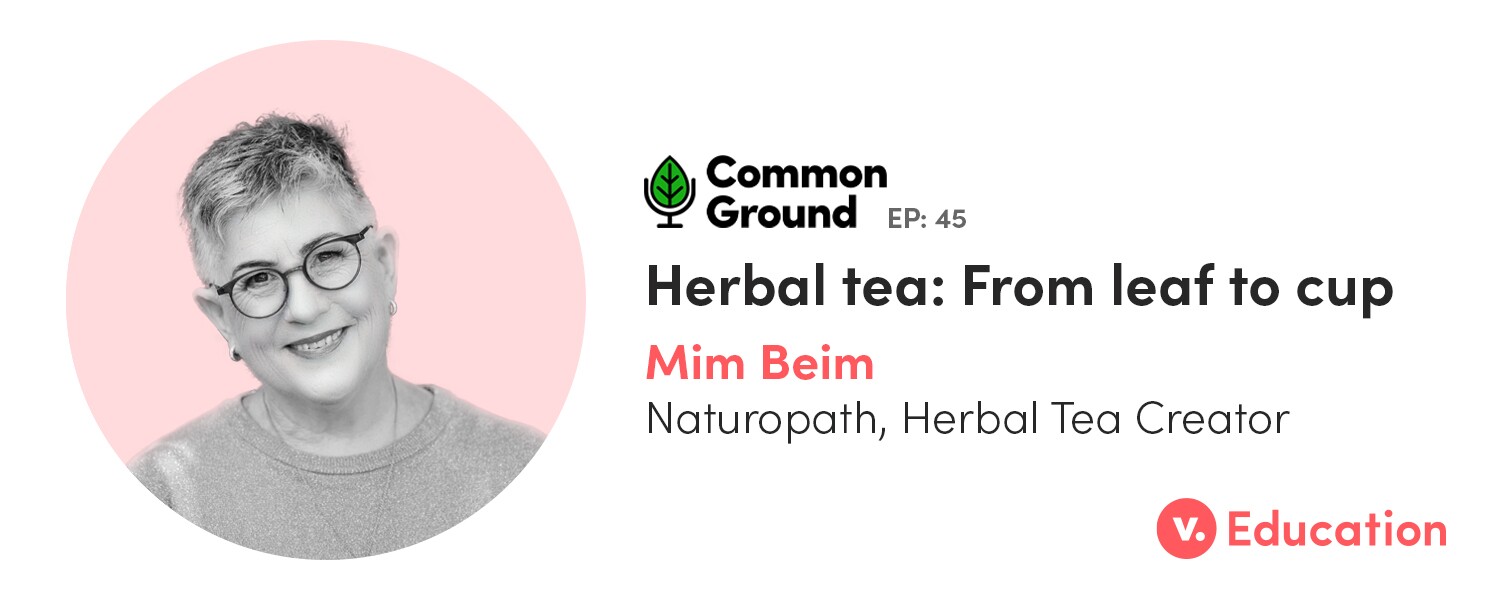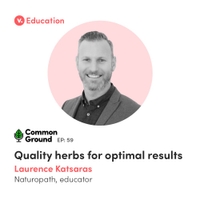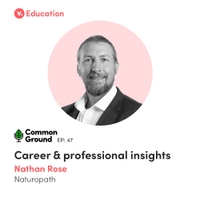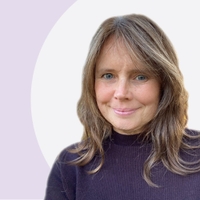
Listen on Amazon music | Apple Podcasts | Google Podcast | Spotify
Laura (00:06): Welcome to Common Ground, a podcast series discussing new research and interesting projects in the field of complementary medicine. Hello, my name is Laura Christoforidis, writer and presenter at vital.ly. This podcast is suitable for a general public audience and anyone interested in health or healthcare professionals. vital.ly is a digital platform, a professional health resource, and a distribution service all in one.
We'd like to begin by acknowledging the traditional custodians of the lands and pay our respects to elder's past, present and future.
Today on Common Ground, I will be speaking with Mim Beim. Mim is a naturopath with over 35 years of clinical experience. She has a thriving naturopathic practice in the Southern Highlands of New South Wales. She has written nine books, including ‘Natural Remedies’. She is one of Australia's foremost Buteyko breathing educators, helping people overcome conditions including asthma, sleep apnea, snoring and anxiety. Mim has also created and manufactured a range of premium herbal teas. Welcome back to Common Ground Mim, it's great to have you here today.
Before we dive in Mim, we'd love to hear a little something about yourself. What led you into the healthcare space?
Mim (01:26): During high school I had anorexia nervosa. Back in the day it wasn't really a thing, so it was just like a very, very successful diet where I went down to 30/29kg. Anyone who has experienced (or knows someone who has experienced) an eating disorder will know that there's an obsessional component there. Mine was about food- it wasn't actually about eating it, but it was obsessing about food. It's out of that unhealthy obsession that my interest grew. In a way that led me to naturopathy and to my healing.
I went to Sydney University to do economics and I can remember, Paavo Airola’s ‘How to Get Well’ was in was in one of the bookshops. I realised that there was such a thing as naturopathy. I then had become an auditor, and left, pronto. I felt like I was in my element and have ever since. I guess it was an unusual way to get into this profession. But not that unusual in that I'm a clinic supervisor, which I still love. People often come in due to their own pathology whether they've had serious bowel disease or possibly an eating disorder, and that's the way they choose to heal.
Laura (03:24): Absolutely- and there's that element of the wounded healer. Mim, you've been a guest before on Common Ground discussing Buteyko breathing, and we'd love to hear today about your therapeutic tea blends. What inspired you to create teas?
Mim (03:42): I had a clinic in the Strand Arcade in the City. I was very, very lucky to have my clinic there. I overlooked Pitt Street Mall with big, beautiful windows, and I used to go and have a cup of tea at a shop called The Tea Centre. They're still in existence but have different owners. I'm quite a tea fan of all varieties, and I got to be quite friendly with the owners there. By that time, they had a chain throughout the eastern seaboard of Australia, and they asked me to produce some herbal teas for them, which was lovely. And so that's how it started- creating blends for The Tea Centre, which they still actually sell. And then my patients obviously enjoyed them, so it came out of that really.
Laura (04:38): And what's the process for creating a new blend? Do you start with a favourite herb, or particular health problem?
Mim (04:46): That took three years interestingly. They asked me to create these blends- I started looking around and I'd go into health food shops. I'd look at the herbal tea through the lens of being a herbalist and I'd go, you know, it says ‘sleepy’ whatever, but I don't think even a mouse is going to get to sleep with that. Or this is for skin and I'd go ‘well, where's the therapeutic herbs?’ I realised that there was a lack there because the general public, they're not going to know what’s a therapeutic herb or not, they’re going to read the label and it says ‘helps you sleep’.
I was aware that a lot of the herbal teas that were saying they would do something were very unlikely to do that and then I realised why that was the case. A lot of the therapeutic herbal remedies taste absolutely diabolical. I realised that the reason why a lot of the herbal teas weren't that great is because they would taste bad. It became a quest to create a blend that tasted good, smelled good, and was good for you, and that's how it started. It was really quite difficult, it was so interesting. I would start with a base herb- something like California Poppy for sleep (I based it on the my herbal formula that I use for my clients). Because you're drinking a whole cup of this stuff, unlike a herbal tincture where you have 5mL and move on, this is a whole cup, preferably three cups a day. It really needed to taste good so that was a really interesting process.
Laura (07:30): And what are some of the benefits of herbal teas?
Mim (07:35): Mostly our patients don't drink enough fluids and so that's already a benefit, you're having a 250mL, or even more of water. Because they're not as strong as a tincture or herbal tablet, you're not likely to have a side effect or an interaction. So, I think having a nice adjunct to a treatment so someone for ulcerative colitis, for example, I've got my digestivo blend,
Laura (09:10): That's my favourite.
Mim (09:12): That’s got a bit of licorice (which as you know, is anti inflammatory), and lemon balm, and chamomile. These are herbs that you might have in a mixture for someone with a serious bowel condition. The tea itself is going to be helpful and soothing. It's never as strong as say, a herbal tincture or a tablet that's got much higher quantity of the therapeutic ingredient.
Laura (09:45): And in clinical practice would you do both a liquid herbal mix and a herbal tea?
Mim (09:54): Yeah, I do. I think that there's something about ‘I'm making this cup of tea’ or pot of tea, it's a ritual. It’s a ritual for your health, for your wellbeing, and even better if you enjoy it. That's why it took so long to formulate these blends, is that you've got to enjoy it, it's got to taste good. It was it was a bit of a journey. Since that time, there's a lot of more herbal blends on the market, which is fantastic.
Laura (11:13): How do you source the herbs and the teabags?
Mim (11:22): I started out with only Australian grown, only organic and then I found out that actually a lot of the herbs can't be grown in Australia, or if they're grown here there's a bad season, so I had to swallow my very high and mighty principle. Rather than saying ‘I won't be able to provide this blend Nighty Night for six months because it's not been grown in Australia’, I had to swallow that particular principle.
Laura (12:36): And what are some of the challenges of sourcing these premium herbs?
Mim (12:41): Last year, for example, I use Ziziphus in my sleep blend, and I really love Ziziphus (Chinese date seed). I love it- it tastes good, but it's also such a good herb. It's slightly sedative and it's good for hot flashes. It was a supply chain thing with COVID and Ziziphus went to 10-fold the price, so it was just extraordinary. Anyway, so trials and tribulations of a ‘tea-meister’.
Laura (14:24): You formulated these teas while you were also in practice, so what were some of those challenges putting together a product range whilst conducting clinical practice?
Mim (14:37): I've never been one to be able to do just one thing, and that's with private practice as well. I absolutely adore my patients. I lecture, I write, I used to have newspaper columns, and as you mentioned, the books, I have the tea range, and I've got the Buteyko. That seems to suit my personality- I enjoy that and I think it gives my brain a bit of a break. I see a certain number of patients a week, and I feel like I give them the best of me, rather than going ‘I don't want to see another client’. So, that seems to work.
Laura (16:06): Excellent. And Mim, what's on the horizon for you?
Mim (16:11): Well, I’ve teamed up with a client of mine, lovely fellow, who created a chai blend for his own company. He's come up with a really nice twist of a dandelion Chai. I've tasted it and it's really yum and really therapeutic. The spices in Chai are just amazing, as you know, for digestion. And so that's coming up on the tea front. And then on the breathing front, I think I'm just about to enrol in a PhD, but also I have got something called the ‘Breathe Well Gym’- it's for breathing fitness.
Laura (17:12): Especially after COVID it's such an important part of recovery.
Mim (17:19): I think people are more aware of how important the breath is. So there's a few things on the on the burner.
Laura (17:32): Excellent, Mim. Well, thank you so much for sharing your valuable insights into your herbal teas.
Mim (17:38): My pleasure. Thank you for having me on your podcast.
Laura (17:41): Thanks for tuning in today. Feel free to leave us a review. We'd love to hear from you. Thank you!






